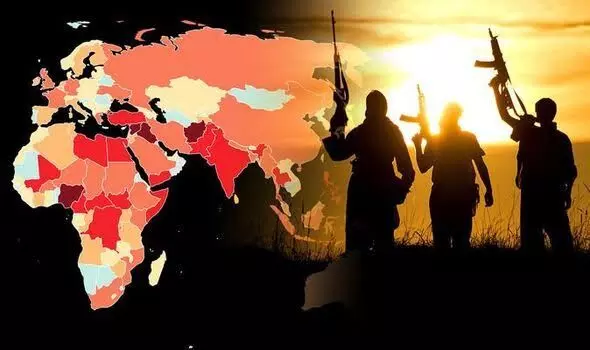Understanding Western Concerns: Radicalism within the Islamic Spectrum

The apprehensions voiced by Western and democratic nations concerning radicalism emanating from certain interpretations of Islam are not directed at the religion itself, but rather at specific, violent extremist ideologies. These ideologies, often cloaked in religious justifications, underpin terrorism, insurgency, and authoritarian governance, posing significant security, societal, and ideological challenges.
The Enduring Threat of Terrorism and Security Imperatives
Radical Islamist groups, including Al-Qaeda, the Islamic State (ISIS), Boko Haram, and Al-Shabaab, have consistently demonstrated a capacity for lethal attacks across the United States, Europe, Africa, and Asia. Seminal events that underscore this persistent threat include:
The 9/11 attacks in the United States (2001)
The London bombings (2005)
The Paris attacks (2015)
The Mumbai 26/11 attack (2008)
These incidents have solidified concerns about both externally directed plots and the potential for homegrown radicalization and jihadi recruitment. Such assaults are frequently contextualized by perpetrators as elements of a global 'jihad' against Western civilization and its secular tenets.
Ideological Divergence with Liberal Democratic Principles
At its core, the wariness stems from an undeniable ideological clash. Radical Islamist doctrines fundamentally reject principles integral to liberal democracies, specifically:
Popular sovereignty and democratic governance
Freedom of expression
Gender equality
Religious pluralism
For Western societies, these values are foundational pillars.Consequently, radical interpretations of Islam are perceived as inherently intolerant, authoritarian, and fundamentally irreconcilable with the principles underpinning liberal democratic systems.
The Proliferation of Extremist Ideologies
A significant concern for Western states is the external propagation and financial support of extremist ideologies by foreign actors. This influence is observed in various spheres, notably:
Religious institutions (mosques)
Online platforms and digital spaces
Educational establishments (madrassas)
The apprehension is that these influences can serve as conduits for radicalizing citizens and potentially destabilizing immigrant communities, creating internal security vulnerabilities.
Mechanisms of Radicalization and Recruitment: Radical Islamist networks adeptly exploit vulnerabilities, targeting disaffected or alienated individuals, including segments of Western Muslim populations, through sophisticated online propaganda. The period between 2013 and 2019, which saw significant ISIS recruitment of foreign fighters from European and North American nations, stands as a stark testament to the efficacy of these methods.
Social Undercurrents and Potential for Backlash:The prevailing fear of radical Islam often inadvertently exacerbates anti-Muslim sentiment, manifesting as:
Complexities of Transnational Legal and Political Challenges :Radical Islamist networks operate with a high degree of transnationality, leveraging diverse channels for organization and communication, including:
Charitable organizations
Refugee pathways
Social media platforms
This cross-border operational fluidity presents formidable challenges to law enforcement and intelligence agencies, often requiring intricate policy responses that do not inadvertently infringe upon fundamental freedoms of religion, expression, and association.
Crucial Clarification: Distinguishing Radicalism from Islam
It is imperative to underscore that the official stance of most Western leaders consistently differentiates between radical, violent interpretations and the religion of Islam itself. The overwhelming majority of the global Muslim population:
Unequivocally rejects extremism :Coexists peacefully within Western societies are, frequently, the primary victims of radical groups and their violence
This nuanced perspective is fundamental; the focus remains resolutely on combating violent extremism, not on the religion of Islam per se.
